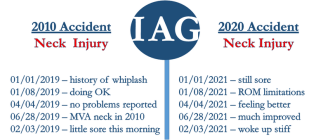
How to Effectively Deal with Home Insurance Adjusters.
Dealing with home insurance adjusters can be a daunting task, especially in the midst of a stressful situation such as property damage or loss. However, it is important to effectively communicate with adjusters to ensure a fair and timely resolution to your insurance claim.
Home insurance adjusters are professionals who are responsible for assessing the extent of damage to your property and determining the amount of compensation you are entitled to. Their role is crucial in the claims process, as they can significantly impact the outcome of your claim.
To deal with adjusters effectively, it is important to be prepared and knowledgeable about your policy. Review your insurance policy thoroughly and understand the terms and coverage. This will help you in understanding the adjuster’s evaluation and negotiating a fair settlement.
When communicating with adjusters, it is important to remain calm and professional. Keep a record of all interactions, including phone calls and emails, and take detailed notes during conversations. Be clear and concise with your answers, and provide any necessary documentation to support your claim. Remember, being organized and well-prepared will strengthen your position when dealing with adjusters.
How to Deal with Home Insurance Adjusters
Dealing with home insurance adjusters can be a frustrating process, but it is important to remember that they are there to help you navigate the claims process. Here are some tips to effectively deal with home insurance adjusters:
1. Gather all necessary information: Before meeting with the insurance adjuster, make sure you have all the relevant documents and information related to your claim. This includes the policy details, photos or videos of the damage, and any receipts or estimates for repairs.
2. Be prepared: When meeting with the adjuster, be prepared to explain the details of the incident and provide any supporting evidence. This will help the adjuster better understand the situation and assess the damage accurately.
3. Ask questions: It is essential to ask the adjuster questions regarding the claims process and what to expect. This will help you understand the timeline and requirements for filing a claim.
4. Keep records: Throughout the claims process, keep detailed records of all communications with the adjuster. This includes phone calls, emails, and any written correspondence. This will help ensure that you have a record of all discussions and agreements made.
5. Know your rights: Familiarize yourself with your rights as a policyholder. Understanding your coverage and the terms of your policy will help you in negotiations with the adjuster.
6. Seek professional advice if needed: If you feel overwhelmed or uncertain about the process, consider seeking advice from a public adjuster or an attorney specializing in insurance claims. They can offer guidance and advocate on your behalf.
By following these tips, you can navigate the process with home insurance adjusters more effectively and ensure a fair resolution to your claim.
Understanding the Role of a Home Insurance Adjuster
When it comes to dealing with home insurance claims, understanding the role of a home insurance adjuster is crucial to effectively navigate the process. Home insurance adjusters are professionals who work for the insurance company and are responsible for assessing and evaluating property damage claims.
These adjusters play a critical role in determining the extent of coverage and the amount of compensation that policyholders are entitled to receive. They are trained to inspect the damage, gather relevant information, and negotiate settlements with homeowners. It’s important to note that their ultimate goal is to protect the interests of the insurance company, so policyholders should be prepared for negotiations.
When filing a home insurance claim, it’s essential to cooperate with the adjuster and provide them with all the necessary information and documentation. It’s also advisable to document the damage yourself by taking photos, videos, and keeping a record of any repairs or temporary fixes you’ve made to your home.
During the assessment process, the adjuster will typically inspect the property, document the damage, and determine the cause and extent of loss. They will review the terms and conditions of your insurance policy and compare it to the damage incurred. They may also consult with experts, such as contractors or appraisers, to assess the value of the damage.
Once the assessment is complete, the adjuster will prepare a detailed report outlining their findings and recommendations. This report will be used by the insurance company to determine the compensation amount. It’s crucial to review this report carefully and ensure that it accurately reflects the extent of the damage and the necessary repairs.
It’s important to remember that policyholders have the right to dispute the adjuster’s findings if they believe they are inaccurate or unfair. In such cases, it may be helpful to seek advice from a public adjuster or an attorney who specializes in home insurance claims. These professionals can help in negotiating a fair settlement or even file a lawsuit if necessary.
In conclusion, understanding the role of a home insurance adjuster is essential when dealing with home insurance claims. By cooperating, providing all necessary information, and being prepared for negotiations, policyholders can effectively navigate the claims process and ensure a fair settlement.
Tips for Preparing for Your Home Insurance Claim
Dealing with home insurance adjusters effectively is crucial when it comes to filing a successful home insurance claim. Here are some expert tips to help you prepare for your claim:
1. Document everything: Before filing a claim, make sure to thoroughly document all damages to your home. Take detailed photos or videos, and keep receipts for any repairs or replacements.
2. Review your policy: Familiarize yourself with the terms and conditions of your home insurance policy. Understand what is covered and what is not, and make sure you have the necessary documentation to support your claim.
3. Notify your insurance company: Contact your insurance company as soon as possible to report the damages and start the claims process. Follow their instructions and provide all requested information promptly.
4. Get multiple estimates: It’s a good idea to obtain multiple estimates from contractors for the cost of repairs. This will help you gauge the accuracy of the adjuster’s estimate and ensure you receive fair compensation.
5. Keep a record of communication: Keep a log of all communication with your insurance adjuster, including phone calls and emails. This will help you keep track of the progress of your claim and any agreements or promises made.
6. Be prepared for the adjuster’s visit: When the adjuster comes to assess the damages, be prepared to provide the documentation you collected, such as photos, receipts, and estimates. Answer any questions they have honestly and provide any additional information they may request.
7. Review the adjuster’s report: Once the adjuster has completed their assessment, carefully review their report and ensure that all damages and necessary repairs are accurately documented. If you disagree with anything in the report, provide the necessary evidence to support your position.
8. Follow up: Stay in touch with your insurance company throughout the claims process, and be proactive in following up if there are any delays or issues. Maintain open lines of communication to ensure a smooth resolution to your claim.
By following these tips, you can effectively prepare for your home insurance claim and increase your chances of a successful outcome.
Documenting the Damage and Losses
When dealing with home insurance adjusters, it is crucial to thoroughly document the damage and losses you have incurred. This documentation will serve as evidence to support your insurance claim and help ensure you receive the appropriate coverage.
Here are some expert tips on how to effectively document the damage and losses:
1. Take photographs or videos: Use your smartphone or camera to capture images or videos of the affected areas. Be sure to document the damage from multiple angles, capturing both close-up shots and wider shots to provide a comprehensive view.
2. Make detailed notes: Write down a description of the damage and any personal property that has been lost or damaged. Include information such as the brand, model, and approximate value of each item. This will help you accurately assess the value of your losses.
3. Keep receipts and invoices: Gather any receipts or invoices you have for the damaged items. This will help provide proof of ownership and value for your insurance claim.
4. Seek professional assistance: If necessary, hire a professional home inspector or contractor to evaluate the damage and provide an official assessment. Their expertise and documentation can add credibility to your claim.
5. Maintain a journal: Throughout the claims process, keep a journal of all conversations and interactions with the insurance adjuster. Note down the date, time, and details of each conversation. This will help you keep track of important information and ensure that nothing is overlooked.
Remember, the more detailed and comprehensive your documentation is, the better your chances will be of receiving fair compensation from your insurance provider. By following these expert tips, you can effectively deal with home insurance adjusters and maximize your claim settlement.
Estimating the Value of Your Damages and Losses
When dealing with home insurance adjusters, it is important to be able to effectively estimate the value of your damages and losses. This will help you ensure that you receive proper compensation for your claims.
First and foremost, document all the damages and losses in your home. Take photos and videos of the affected areas, making sure to capture any visible damage. This visual evidence will serve as proof of the extent of your losses.
Next, make a detailed inventory of all damaged or destroyed items. Include a description, quantity, brand, model, and approximate value of each item. You may also include receipts or proof of purchase for more expensive items. This inventory will provide an accurate assessment of your personal property loss.
Consider seeking professional help to estimate the value of more complex damages. For example, if you have structural damage to your home, consult a contractor or engineer to assess the repairs needed and estimate the cost.
Keep in mind that some damages may be covered under your insurance policy and others may not. Review your policy carefully to understand the extent of your coverage.
Finally, gather any additional supporting documents that may help establish the value of your damages and losses. This may include repair estimates, invoices, or any other relevant documentation.
By taking these steps and being diligent in documenting and estimating the value of your damages and losses, you will be better equipped to negotiate with home insurance adjusters and ensure that you receive fair compensation for your claims.
Negotiating with the Insurance Adjuster
When it comes to dealing with home insurance adjusters, it is important to negotiate effectively in order to get the best possible outcome for your claim. Here are some expert tips and advice on how to effectively negotiate with insurance adjusters:
- Prepare Yourself: Before negotiating with the insurance adjuster, gather all the necessary documentation and information related to your claim. This includes photos, receipts, and any other evidence that supports your case. Being well-prepared will strengthen your position during negotiations.
- Know Your Policy: Familiarize yourself with the details of your home insurance policy so that you know what is covered and the limits of your coverage. This will enable you to make more informed decisions during negotiations and assert your rights as a policyholder.
- Be Assertive: When negotiating with the insurance adjuster, be confident and assertive in expressing your claim’s value. Present your evidence and explain why you believe you are entitled to a fair settlement. Avoid being confrontational, but be firm in advocating for your rights.
- Stay Calm and Professional: Keep your emotions in check and maintain a professional demeanor during negotiations. Losing your temper or becoming overly emotional can hinder your ability to effectively negotiate and may negatively impact the overall outcome of your claim.
- Listen Carefully: During negotiations, listen carefully to what the insurance adjuster has to say. Pay attention to their arguments and counter any inaccuracies or discrepancies. By actively listening, you can better address their concerns and work towards a mutually beneficial resolution.
- Document Everything: Keep detailed notes of all communication and negotiations with the insurance adjuster. This includes recording dates, times, and the content of conversations. Having a clear record of all discussions will help protect your interests and provide evidence of your efforts to reach a fair settlement.
- Consider Seeking Professional Help: If you find negotiating with the insurance adjuster to be challenging or if the settlement offers are unsatisfactory, it may be worth considering seeking professional assistance. Hiring a public adjuster or a lawyer who specializes in home insurance claims can greatly improve your chances of achieving a fair settlement.
Remember, negotiating with insurance adjusters requires patience, resilience, and the ability to effectively communicate your needs. By following these tips and advice, you can increase the likelihood of reaching a satisfactory resolution for your home insurance claim.
Providing Evidence to Support Your Claim
When dealing with home insurance adjusters, it is important to provide sufficient evidence to support your claim. This evidence is crucial in proving the damage or loss you have experienced and ensuring that you receive the appropriate compensation from your insurance company.
Firstly, it is essential to document the damage or loss as soon as possible. Take clear and detailed photographs of the affected areas and any damaged items. These photographs should be accompanied by written descriptions of the damage, noting any relevant details such as the date and time of the incident.
Additionally, gather any related receipts, invoices, or contracts that can prove the value and ownership of the damaged items or property. This evidence can be used to establish the cost of repairs, replacements, or rebuilding when presenting your claim.
In some cases, it may also be necessary to obtain expert opinions or assessments to validate your claim. For example, if you have experienced water damage, you may need to hire a professional plumber or water damage restoration specialist to inspect and provide a detailed report on the extent of the damage and the necessary repairs.
Keep in mind that providing accurate and thorough documentation is crucial for a successful insurance claim. The more evidence you can provide, the stronger your case will be, and the more likely you are to receive the compensation you deserve. Remember to keep all original documents and make copies for your records.
While it is important to provide evidence, it is equally important to maintain open and honest communication with your insurance adjuster. Be prepared to answer any required questions and provide any additional information or documentation they may request.
By providing solid evidence and maintaining cooperation throughout the claims process, you can effectively deal with home insurance adjusters and increase the likelihood of a fair and satisfactory resolution to your claim.
Dealing with Delays and Denials
When it comes to dealing with insurance adjusters, delays and denials can sometimes be an unfortunate reality. However, there are steps you can take to effectively navigate these challenges and ensure that your home insurance claim is properly managed.
1. Document Everything: It’s crucial to keep thorough records of all interactions with your insurance adjuster, including dates, times, and any relevant information discussed. This documentation can be invaluable in case of a delay or denial.
2. Stay Persistent: Don’t be discouraged by delays or denials. Be persistent in following up with your insurance adjuster and request updates on the status of your claim. Sometimes they may require additional documentation or information, so be prepared to provide what they need.
3. Know Your Rights: Familiarize yourself with your insurance policy and understand your rights as a policyholder. If you believe that your claim has been unreasonably delayed or denied, you may be entitled to appeal the decision or seek legal assistance.
4. Seek Professional Help: If you’re struggling to navigate the insurance adjuster process on your own, consider seeking help from a public adjuster or an attorney specializing in insurance claims. These professionals can provide expertise and guidance to ensure a fair resolution.
5. Keep Calm and Communicate: Dealing with delays and denials can be frustrating, but it’s important to remain calm and professional in your communications with the insurance adjuster. Clear and concise communication can help expedite the resolution process.
Remember, dealing with delays and denials in the insurance claim process can be challenging, but with persistence, documentation, and knowledge of your rights, you can effectively navigate these obstacles and achieve a fair outcome.
Seeking Legal Assistance
When it comes to dealing effectively with home insurance adjusters, seeking legal assistance can be a crucial step in protecting your rights and maximizing your insurance claim. Insurance companies often have teams of adjusters and lawyers working to protect their own interests, so having a knowledgeable attorney on your side can level the playing field.
An insurance claim can be complex and overwhelming, especially if you are unfamiliar with the insurance industry. A skilled attorney who specializes in home insurance can guide you through the process, helping you understand your policy, rights, and options.
Insurance companies may try to undervalue your claim or delay the settlement process. In some cases, they may even deny your claim altogether. Having legal representation can help ensure that you are treated fairly and that you receive the compensation you deserve.
A qualified attorney can negotiate with insurance adjusters on your behalf, advocating for your best interests. They can analyze the terms of your policy, assess the damage to your home, and determine the appropriate amount of compensation you should receive.
Additionally, an attorney can help gather the necessary evidence to support your claim. This may include documentation, photographs, videos, and expert opinions. They can also handle any necessary paperwork and communicate with the insurance company on your behalf.
In the event that your insurance company refuses to adequately compensate you for your losses, an attorney can help you file a lawsuit and represent you in court. They will have the knowledge and experience to navigate the legal process and fight for your rights.
Remember, insurance adjusters are trained professionals working for the insurance company, and their main goal is to protect their employer’s interests. Seeking legal assistance ensures that you have someone on your side who is solely focused on protecting your rights and helping you effectively deal with your home insurance claim.
Overall, if you have a home insurance claim and want to deal with it effectively, seeking legal assistance is an important step to take. An experienced attorney can provide you with the guidance, support, and representation needed to navigate the insurance claim process and ensure you receive the compensation you are entitled to.
Understanding the Claim Settlement Process
When it comes to dealing with home insurance claims, understanding the claim settlement process is crucial. This process involves various steps that determine how effectively your insurance company will deal with your claim and provide you with the compensation you deserve.
The first step in the claim settlement process is contacting your insurance company to file a claim. This should be done as soon as possible after the damage occurs. Make sure to provide all the necessary information, such as the date and time of the incident, a description of the damages, and any supporting documentation, such as photos or videos.
Once your claim is filed, an insurance adjuster will be assigned to assess the damages. The adjuster will visit your home to inspect the damage and evaluate the cost of repairs or replacements. During this inspection, it is crucial to be present and provide any additional information or evidence that can support your claim.
After assessing the damages, the insurance adjuster will determine the coverage and compensation you are entitled to according to your policy. It is important to carefully review the adjuster’s findings and make sure that all damages are accounted for. If you disagree with the settlement offer, you can negotiate with the adjuster directly or involve a public insurance adjuster to help you in the process.
If an agreement is reached, the insurance company will issue a settlement check. However, keep in mind that the amount offered may not always cover the entire cost of repairs or replacements. You may be responsible for paying a deductible, and certain damages may be excluded from your policy coverage.
Once you receive the settlement check, you can begin the repairs or replacements needed to restore your home. Make sure to keep records of all expenses related to the claim, as you may need to submit them to the insurance company for reimbursement.
In conclusion, understanding the claim settlement process is crucial for effectively dealing with home insurance claims. By following the steps outlined by your insurance company and advocating for your rights, you can ensure a fair and efficient resolution to your claim.
Avoiding Common Mistakes in Dealing with Insurance Adjusters
When it comes to dealing with home insurance adjusters, effectively navigating the process is essential to ensure you get the coverage you deserve. However, there are several common mistakes that homeowners often make when dealing with insurance adjusters. By being aware of these mistakes, you can avoid them and increase your chances of a successful insurance claim.
| Mistake | Consequence | Effective Approach |
| Relying solely on the insurance adjuster’s assessment | Risk of undervaluing the damage | Obtain multiple independent inspections to ensure accurate assessment of the damage. |
| Not documenting the damages properly | Difficulty in proving the extent of damage | Take detailed photographs and videos of the damages as evidence. |
| Settling for the first offer | Potential loss of proper compensation | Negotiate with the insurance adjuster to get a fair settlement. |
| Providing incomplete or inaccurate information | Delay in the claims process | Be thorough and accurate when providing information to the insurance adjuster. |
| Not understanding the insurance policy | Failure to maximize coverage | Review and understand your policy before discussing with the insurance adjuster. |
| Being unprepared during meetings or negotiations | Weakened position in discussions | Research and gather all relevant documentation and information beforehand. |
By avoiding these common mistakes and following these effective approaches, homeowners can increase their chances of a successful home insurance claim. It is important to remember that dealing with insurance adjusters requires knowledge, preparation, and effective communication skills. By staying informed and being proactive, you can ensure that you are treated fairly and receive the proper compensation for your home insurance claim.
Tips for Maintaining Communication with the Insurance Adjuster
Effectively dealing with home insurance adjusters requires constant communication. Here are some tips to help you maintain a strong line of communication with your insurance adjuster:
1. Be proactive: Reach out to your adjuster as soon as possible after filing your claim. Show them that you are actively involved in the process and eager to work together towards a resolution.
2. Keep records: Document all interactions with your insurance adjuster. This includes phone calls, emails, and in-person meetings. Keeping a record of conversations and any agreements made will help to avoid any misunderstandings down the line.
3. Be organized: Keep all relevant documents, such as photos, receipts, and estimates, in a well-organized manner. This will make it easy for you to provide the necessary information to your adjuster and demonstrate your preparedness.
4. Respond promptly: When your insurance adjuster reaches out to you with questions or requests for information, make it a priority to respond in a timely manner. This will show your commitment to resolving the claim and foster a positive relationship with the adjuster.
5. Seek clarification: If you don’t understand something or need further explanation, don’t hesitate to ask your adjuster for clarification. Clear and open communication is essential for a successful claims process.
6. Be patient: Dealing with insurance claims can be a lengthy process, so it’s important to remain patient and understanding. Maintain regular communication with your adjuster to stay updated on the progress of your claim.
7. Stay professional: Always remain professional and polite when communicating with your insurance adjuster, even if you are frustrated or disagree with their assessment. A courteous attitude can contribute to a more amicable resolution.
By following these tips, you can effectively maintain communication with your insurance adjuster, ensuring a smoother and more productive claims process for your home insurance claim.
Identifying Red Flags and Questionable Practices
When dealing with home insurance adjusters, it is important to be aware of red flags and questionable practices that could potentially impact your insurance claim. Here are some key indicators to watch out for:
| Inconsistent or vague communication | If the adjuster is avoiding clear responses or seems unclear in their communication, it could be a sign of questionable practices. |
| Delayed response or lack of updates | If the adjuster consistently fails to provide updates or takes an unusually long time to respond to your inquiries, it can be a red flag. |
| Pressuring you to settle quickly | If the adjuster is pushing you to accept a settlement offer without giving you proper time to evaluate the damages and options, it may indicate questionable practices. |
| Lowballing the value of your claim | If the adjuster consistently undervalues the damages or denies significant portions of your claim without valid reasons, it could be a red flag. |
| Refusal to provide documentation or evidence | If the adjuster refuses to provide you with the necessary documentation or evidence supporting their decisions, it may indicate questionable practices. |
| Excessive delays in claim processing | If the adjuster unnecessarily extends the claim process without valid reasons, causing significant delays, it can be a red flag. |
| Lack of professionalism or uncooperative behavior | If the adjuster displays unprofessionalism or behaves uncooperatively during the claims process, it may indicate questionable practices. |
If you observe any of these red flags or questionable practices, it is important to document them and communicate your concerns with your insurance company. Consider seeking legal advice if you believe your claim is being mishandled or unfairly denied.
Q&A:
What is a home insurance adjuster and what do they do?
A home insurance adjuster is an individual who works for the insurance company and is responsible for evaluating and estimating the damages or losses covered by the policy. They assess the extent of the damage, determine the amount of compensation, and negotiate with the policyholder on behalf of the insurance company.
What should I do when an insurance adjuster visits my house after a claim?
When an insurance adjuster visits your house after a claim, it is essential to cooperate and provide them with all the necessary information and documentation related to the damage. Take photos, videos, and inventory of the damaged items. Make sure to ask for the adjuster’s identification and contact information for future reference.
What should I be aware of when dealing with a home insurance adjuster?
When dealing with a home insurance adjuster, it is important to be aware of your rights and policy coverage. Familiarize yourself with the terms and conditions of your insurance policy. Keep a record of all communication and documentation related to your claim. Also, it is advisable to consult with a public adjuster or an attorney if you feel that the insurance company is not offering fair compensation.
Can I negotiate with a home insurance adjuster?
Yes, you can negotiate with a home insurance adjuster. It is important to provide them with evidence and documentation supporting your claim and be prepared to justify your compensation demands. However, if you are not satisfied with the outcome of the negotiation, you may seek assistance from a public adjuster or an attorney to help you navigate the process and improve your chances of receiving a fair settlement.







